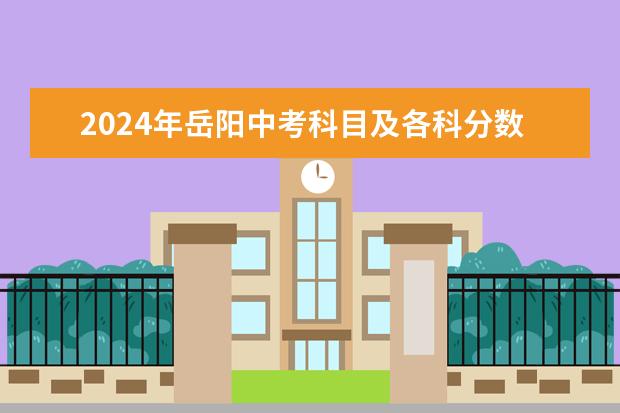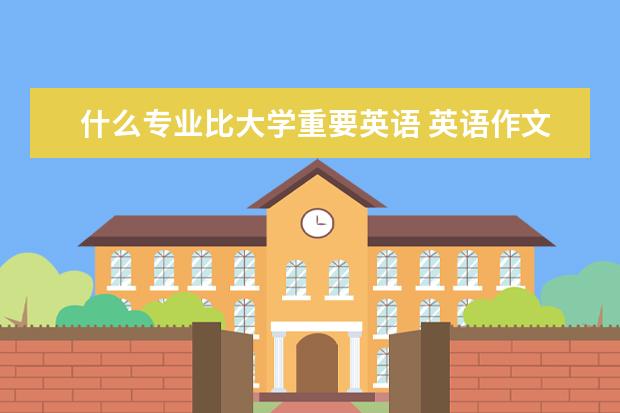今天蜕变学习网小编整理了我的优势大学专业介绍作文 我最喜欢的大学,英语作文,100个词左右,初一能看懂的...,希望在这方面能够更好的帮助到考生及家长。
英语作文关于大学选系的,说出选这个系的原因.120字...
first,accounting is the foundation of the economic society.econimic institutions,including enterprise,NGO,have their own finance department,accounting is their daily work,recording all the deals in number and report.you can know almost every single trade of the organization,it's amazing.
second,accounting is the base of any other major which has relationship with economy.you need to have the knowledge of accounting when you are working in banks,investment bank,fund company,etc.
third,accounting is not fixed as math.you need to think and choose the most benefit way to record the deal and abey the GAAP,that need you know the business of your organization very much,and you need to know the whole market very much.
i wish to be a useful person and in that way i can earn the respect from others.that's why i choose my major.
写一篇以"拥有一个大学教育的优势"为话题的英语作文...

Availability of Jobs
The number of jobs that require a college degree or where a college education is an advantage is increasing. In previous generations, there were many levels of jobs available for those without a college education or in some cases, even a high school diploma. However now many of these jobs simply do not exist any longer, or now require college education.
Industrial jobs, trades and skilled labor were more prevalent before the rise of computer technology. Now many industries require a *aller workforce because of technological advances. Even though not as many assembly line workers are needed, there are many jobs available in engineering, management and business administration in which a college education is an advantage.
Types of Jobs
The advantages of a college degree in scientific, manufacturing and engineering fields are very strong. College students can now study highly specialized science related degrees that apply directly to business settings. Safety engineering, environmental science and DNA *ytics are examples of highly specialized fields that have become in demand in just the past 10 years or so.
One of the advantages of a college education is that students become aware of many subjects and fields that they never would have considered without going to college. Students are required to take a variety of basic education courses such as math, sciences, literature and basic computing. Electives are also required and students may take a course that just sounds interesting or appealing to them. Often students discover during one of these courses that they have a talent and/or passion for a subject and begin to understand its potential in the job marketplace.
While obtaining a specialized degree is necessary in some fields, sometimes just having a college education is an advantage, regardless of the field of study. Employers want to know that their employees have a well rounded basic education. The advantages of a college degree will be proven when your resume is chosen over those who did not make the commitment to complete their education.
Salary & Benefits
The advantage of a college degree equals to higher wages and salaries. In the Winter 2004-05 Occupational Outlook Quarterly, The US Department of Labor reported that "In 2003, workers who had a bachelor's degree had median weekly earnings of $900, compared with $554 a week for high school graduates--that's a difference of $346 per week, or a 62 percent jump in median earnings." These figures are a bold statement that the advantage of a college degree is its increased earning power.
Job seekers will also find that positions that may not actually require a college education will still pay more to those who have a degree. Jobs seekers with a college education will still earn higher salaries, even when the degree is not directly required for the job.
The jobs that do not require a college education often have fewer benefits. These jobs often provide no retirement or health insurance benefits which are imperative to financial security and the stability of the family.
---------------------
There are many reasons to pursue a higher education, but rarely are those reasons so clearly expressed as they are in the statistical data and recent report released by The Georgetown University Center on Education and the Workforce. After reviewing this report, College Compass is proud to present a concise and informative summary of the most important reasons to pursue a Bachelor’s degree. We hope you all enjoy our presentation, and encourage you to comment if you have any thoughts or questions!
The Georgetown University Center on Education and the Workforce recently released astudy detailing the benefits of a post-secondary education in the recession and post-recession workforce. The report, aptly named The College Advantage: Weathering the Economic Storm, details the particulars of the nation’s recent economic turmoil, specifically in regard to the benefits of a Bachelor’s degree in the present-day workforce. It should come as no surprise to our readers that a college education is desirable, but the difference in wage earning potential, employment rates and underemployment rates, as well as the intangible benefits, that a college degree affords its recipients is astonishing. Additionally, according to the Georgetown University report, a bachelor’s degree not only increases the likelihood of someone finding a job, despite the economy’s sluggish performance, but also of keeping it. For these reasons, and many more, it is clear the advantages of a college degree are essential components to succeeding in a modern workforce.
"The Georgetown University Center on Education and the Workforce is an independent, nonprofit research and policy institute affiliated with the Georgetown Public Policy Institute that studies the link between education, career qualifications, and workforce demands."
According to their Press Release, “The wage premium for a bachelor’s degree or better relative to high school degrees skyrocketed from 44 percent in 1981 to 100 percent in 2005 and has only fallen to 97 percent since the beginning of the recession.” This means the average wage earning potential is almost double for a college graduate; the historic trend of degree-holders dwarfing the wage earning potential of less educated workers has significantly increased despite, and in the face of, the recent economic recession.
In terms of job creation since the beginning of the Recovery, which is considered to be the period from January 2010 to February 2012 (Note: the recovery is ongoing, but February 2012 is when Georgetown’s study stopped using data for this report), “Jobs that require a bachelor’s degree have been the big winner, increasing by 2.2 million jobs … At the same time 5.8 million jobs for those with high school (degrees) or less have been lost since the recession began.” These startling statistics make it clear that one of the safest investments you can make in a national and global recession, and subsequent recovery, is in your education. A bachelor’s degree significantly increases your chance of finding a job; in fact, “ more than half of all jobs created (since the recovery) have gone to workers with Bachelor’s degrees or better.”
During the Recession, which is considered to have occurred in the period from December 2007 to January 2010, not only was there no aggregate job loss among workers with a Bachelor’s degree or higher, there was actually a creation of 187,000 jobs; this means that even before entering into the Recovery, jobs requiring a Bachelor’s degree were not only NOT being eliminated, they were being created. Consider these statistics, taken directly from the GUCEW’s report, “… the unemployment rate for recent four-year college graduates … is at 6.8 percent. At the same time, the unemployment rates for recent high school graduates are near 24 percent.” Taken together, these statistics suggest a bachelor’s degree increases your chances of not only finding a job, but keeping it.
Another interesting perspective to take when considering the benefits of a college education is not just unemployment but underemployment. Someone is underemployed when they are employed at a low-paying job that requires less skill or training than they actually possess. In a comparison of relative underemployment, “the underemployment rate for four-year college graduates is currently (May 2012) at 8.4 percent … for high school graduates (it) is … at 17.3 percent.” So, even if you were to set aside the obvious financial incentives of obtaining a post-secondary education, there are still important reasons to pursue a bachelor’s degree, i.e. job satisfaction.
A graphic example of success with or without a Bachelor's degree.
There are a number of reasons, even aside from the compelling data offered by The Georgetown University Center on Education and the Workforce, to believe a bachelor’s degree is a critical component to financial success in a modern economy and contemporary workforce. A Bachelor’s degree, or even an Associate’s degree, demonstrates to potential employers that you are competent and intelligent. A degree also represents an ability to commit to, and succeed in achieving, long term goals.
Disregarding the conspicuous advantages afforded to potential employees by a Bachelor’s degree, as compared to less educated applicants, another important aspect to consider when deciding to pursue a post-secondary education is the actual investment in oneself it represents. This idea can be referred to as “Human Capital,” which is the real knowledge and experience a college education gives you. There is no way to quantify or exactly measure everything you learn through the experience of graduating college, but it is evident that a graduate is much better prepared for the “real world.” This is because a college degree is not just for show; you learn valuable information by attending class regularly and gain equally valuable, and practical, experience by rising to the challenge of applying that information in a classroom setting.
我最喜欢的大学,英语作文,100个词左右,初一能看懂的...

我最喜欢的大学英语作文:
My dream college is the University of Arizona, which is a beautiful university located in a beautiful town, Tucson, Arizona.
It is great place for sunlight. I love science. The optical science is ranked No.1 in the United States. And the communication major also is ranked No.1 in America. The campus is very beautiful and full with *iles on people's faces.
They will say "Thank you" if you hold the door for them after you enter a building. The University of Arizona is a scenic spot for the traveller. There are lots of travellers, who are with their children, go the Student Union to taste fun of the college life and visit Main Library to feel the academic air.
I also heard the Lunar Planetary Science College already had a cooperation with NASA and they will send an satellite to an asteroid, called 1999 RQ36. The mission is called OSIRIS-REx. Finally, BEAR DOWN, ARIZONA!
我梦想中的大学是 亚利桑那大学 ,这是一所美丽的大学,位于Tucson 亚利桑那州 的一个美丽的小镇上。
这是阳光的好地方。我爱科学。光学科学在美国排名第一。而通信专业也在美国排名第一。校园非常美丽,人们的脸上充满了笑容埋毁。
进入大楼后,如果你为他们开门,他们会说“谢谢”。亚利桑那大学是 旅行者 的旅游景点。有许多旅行者和他们的孩子在一起,去学生会品尝大学生活的乐趣,参观图书馆,感弯裂备受学术氛围。
我还听说 月球 行星科学学院已经与美国航天局合作,他们将发送一个卫星,小行星1999 RQ36,称为。任务源渗叫做 奥西里斯 雷克斯。最后,亚利桑那州!
以上,就是蜕变学习网小编给大家带来的我的优势大学专业介绍作文 我最喜欢的大学,英语作文,100个词左右,初一能看懂的...全部内容,希望对大家有所帮助!
免责声明:文章内容来自网络,如有侵权请及时联系删除。
本文标题:我的优势大学专业介绍作文 我最喜欢的大学,英语作文,100个词左右,初一能看懂的...
wap地址: https://m.tbqqq.com/zixun/367920.html



















